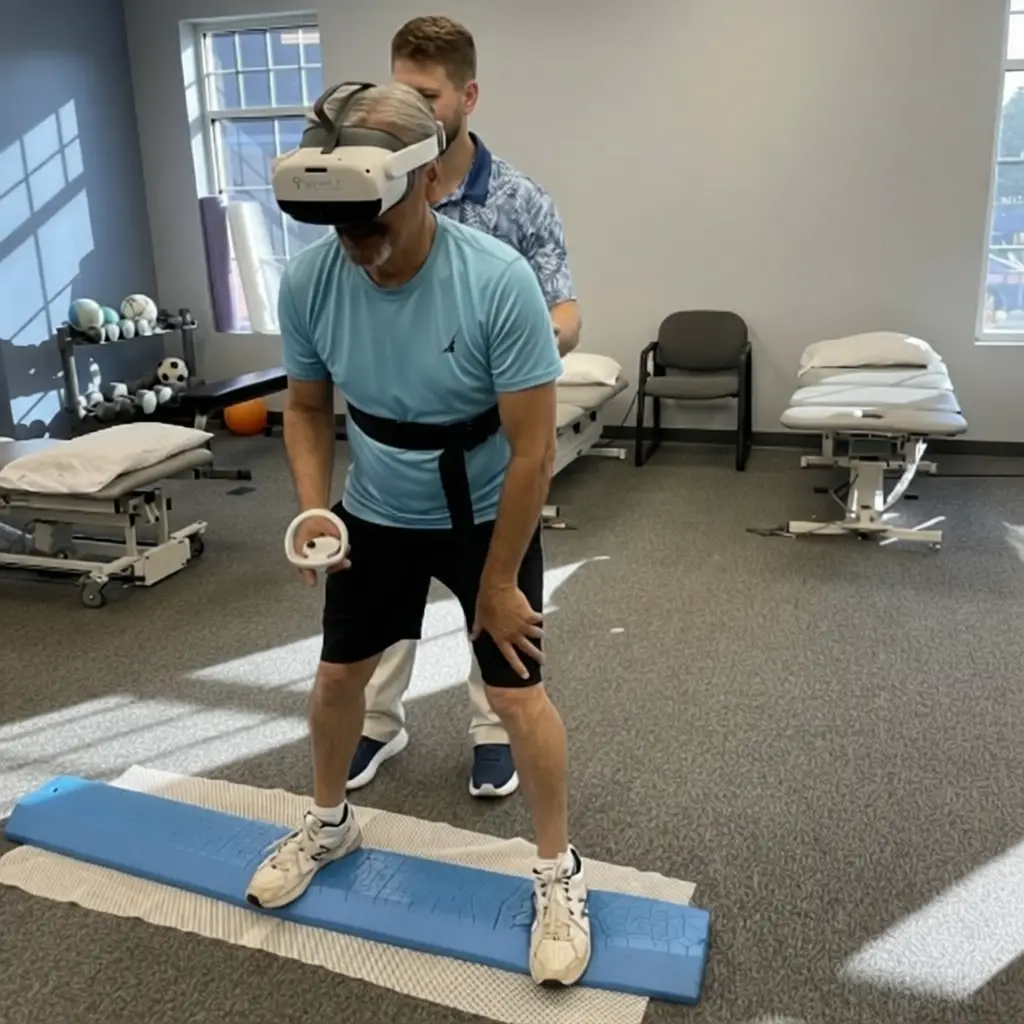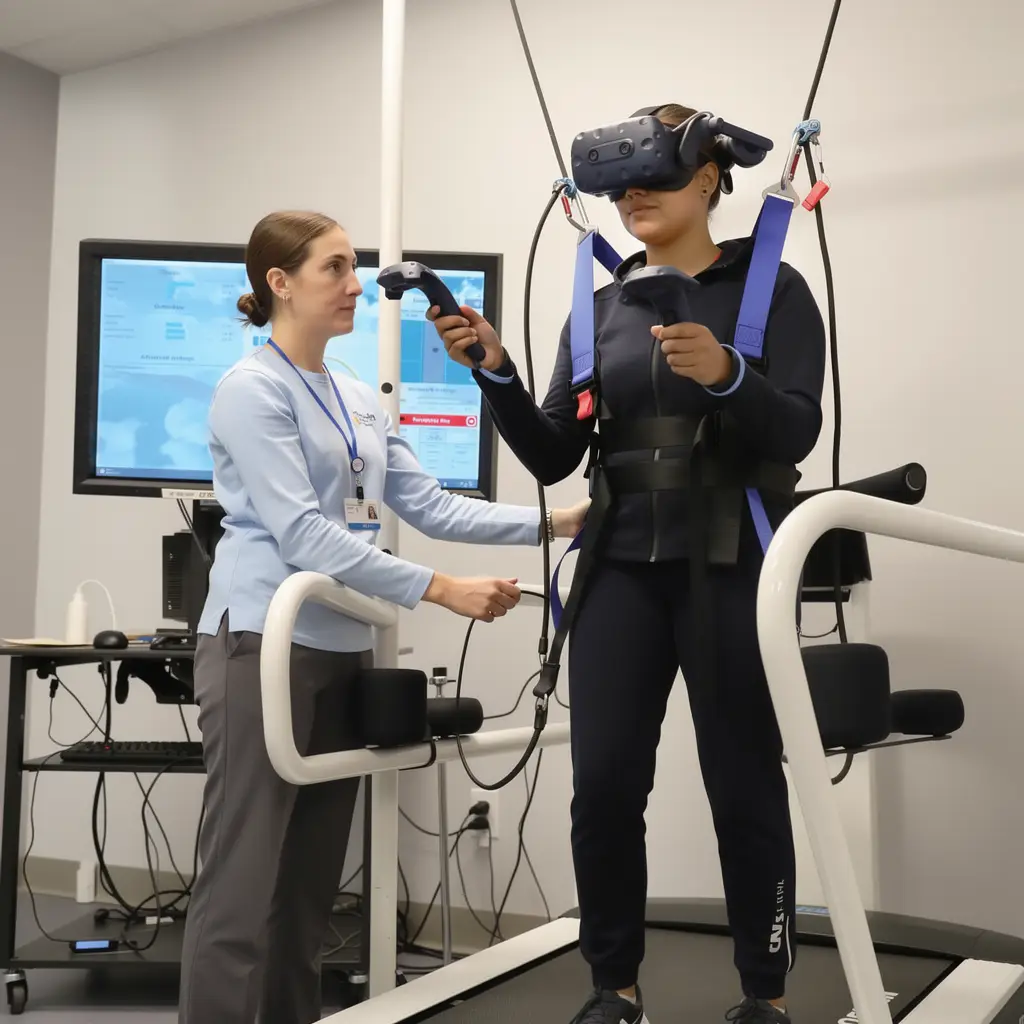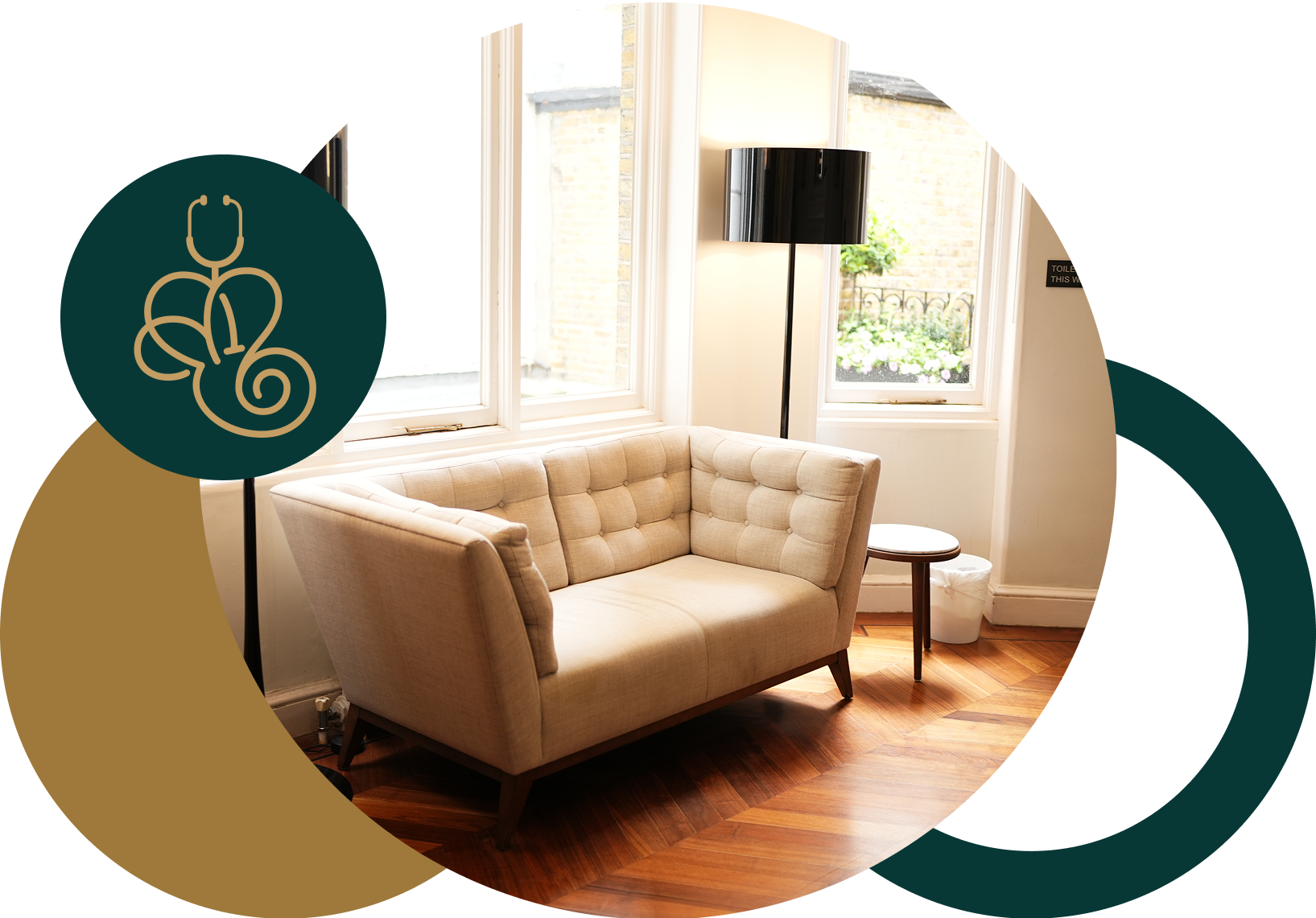Steady Steps Start with Expert Care
Vestibular Physiotherapy in London
Balance is a complex combination of what we see, what we feel and what we hear. It involves your vestibular system, your brain, your vision and your joints. If any component of our balance equation is off, problems can occur including dizziness, nausea, vertigo and a general feeling of being unsteady on your feet. Vestibular Physiotherapy at Harley Street AVM is designed to treat those and other symptoms associated with loss of balance and restore equilibrium in a safe and effective way.
Specialist Care for Hearing, Vertigo & Balance
Specialist Care for Hearing, Vertigo & Balance
Restore Balance, Regain Control
An Overview of Vestibular Physiotherapy
Balance difficulties can take many forms and have many causes. Some of the most common causes of imbalance requiring Vestibular Physiotherapy include:
BPPV: BPPV stands for Benign Paroxysmal Positional Vertigo, a condition caused by tiny components of the inner ear moving from their intended positions. In most cases people with BPPV experience moments of imbalance when they move their head.
Vestibular neuritis: Also sometimes referred to as labyrinthitis, vestibular neuritis is caused by an infection or a virus that damages parts of the balance organs resulting in vertigo, nausea and unsteadiness when standing or sitting.
PPPD: Persistent Postural-Perceptual Dizziness is a state of chronic dizziness resulting from various vestibular disorders.
Ménière’s disease: This condition is the result of chemical changes to the fluid of the inner ear. People with Ménière’s often complain of tinnitus, vertigo, hearing loss and imbalance.
Head injuries and vestibular migraines can also cause balance problems.
Pinpointing the Cause
When Balance Problems Need Specialist Care
How Vestibular Physiotherapy Can Help
The highly trained and experienced medical consultants at Harley Street AVM conduct a thorough assessment and diagnosis of your condition before recommending physiotherapy with our specialist vestibular physiotherapist. If Vestibular Physiotherapy is indicated, we work closely with you to devise a plan of exercise and other measures that will train your central nervous system to counteract the effect of your vestibular problem, dizziness and imbalance.

How We Deliver Vestibular Physiotherapy
A loss of one’s balance can be one of the most vexing conditions a person can experience. At Harley Street AVM we understand how disturbing balance issues can be and provide expert Vestibular Physiotherapy that will enable you to develop tools to counteract the causes of your imbalance so that you can resume a normal life. To learn more call Harley Street AVM today on 020 3480 9630.

Major Insurance Providers Accepted
our services
Conditions We Are Treating At Harley Street Audiovestibular Clinic
FAQS
Common Questions for Vestibular Physiotherapy

Find answers to vestibular physiotherapy, treatment options, and how our specialists can help. If you have any further queries, our team at Harley Street Audiovestibular Clinic is here and happy to help.
What Is Vestibular Physiotherapy?
Vestibular physiotherapy is a kind of physical therapy that helps retrain the brain nervous system to compensate for weakness or loss of function of the vestibular system. Multiple studies have confirmed the effectiveness of vestibular physiotherapy in restoring balance in whole or in part to people suffering from inner ear vestibular malfunction. Vestibular physiotherapists receive highly specialised training and work closely with our doctors and audiologists. The vestibular physiotherapists at Harley Street Audiovestibular Clinic come highly recommended by our medical staff.
What Are the Advantages of Vestibular Physiotherapy?
Clinical studies indicate that vestibular physiotherapy can provide a host of benefits including but not necessarily limited to:
Improved balance
A reduced risk of falling
A reduction in feelings of dizziness
Better coordination while in motion
Reduction in vertigo symptoms
More stable vision
What Is Involved With Vestibular Physiotherapy?
The precise physiotherapy regime prescribed depends on the nature of a person’s symptoms as well as the potential causes of the vestibular dysfunction. The activities prescribed will be tailored to the specific needs of the patient and will also include various exercises that can be performed at home. As a general rule, these exercises will involve eye movement control, balance retraining or stretching and strengthening exercises.
How Long Does Rehabilitation Take?
Again, it depends on the specifics of your situation including the number and severity of your symptoms. On average the rehabilitation period is –8-12 weeks, although it may be as little as a couple of weeks or as long as several months.
Are There Medications I Can Take to Hasten Rehabilitation?
Not really. There are some medications that may reduce acute symptoms in some individuals, but they will not produce any long-term benefits. If you have any other associated conditions such as migraine, vestibular migraine, Meniere’s disease or endolymphatic hydrops, your doctor may prescribe you medications to help control these so that vestibular physiotherapy can work in conjunction. Eventually, you may need a combination of the correct diagnosis, appropriate medications andvestibular physiotherapy if you want long-term relief from some, most or all of your symptoms.
Can Nutritional Supplements Help?
Supplements do not directly help with vestibular physiotherapy or rehabilitation. However, should you have any other vestibular conditions that are associated with your vestibular weakness such as migraine, vestibular migraine etc., then there are some supplements that maybe beneficial. Supplements need to be medically studied and proven prior to recommendation. They also need to be taken at the correct dosage. t is possible that taking the wrong dietary supplement might even make things worse. Following your diagnosis, your specialist will discuss some of these options with you should they be appropriate and advise on the correct type and dosage.
Trusted Experts in Hearing & Balance
Hearing, Vertigo & Balance Experts
Take the first step towards better hearing and balance! Schedule your consultation today and experience expert care that truly makes a difference.